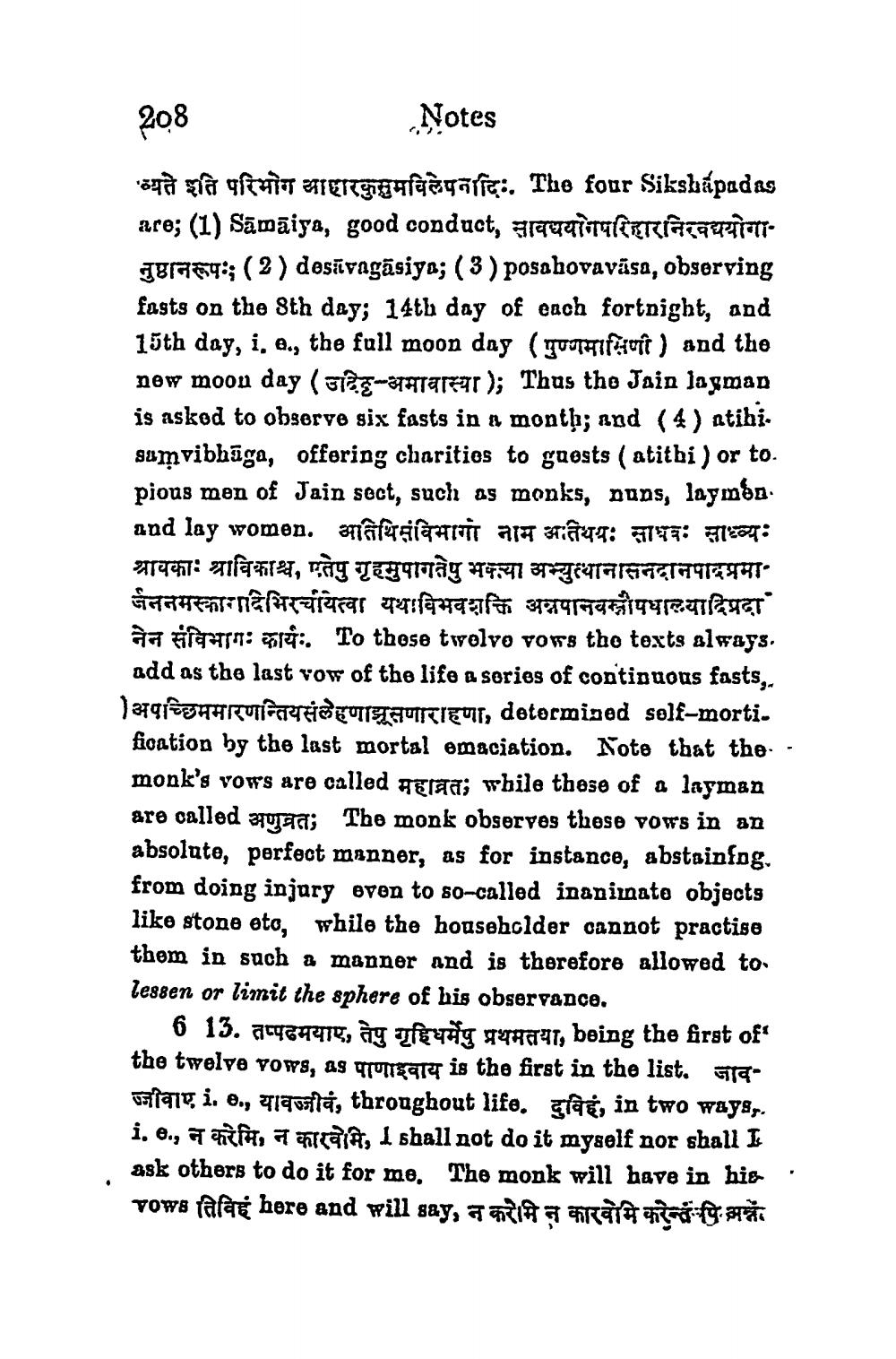________________
Notes
208
'व्यते इति परिभोग आहारकुसुमविलेपनादिः The four Sikshápadas are; (1) Sāmāiya, good conduct, zavqînalterâcqueîor JUAK:; (2) desīvagāsiya; (3) posahovavāsa, observing fasts on the 8th day; 14th day of each fortnight, and 15th day, i, e., the full moon day (gift) and the new moon day (sing-amrarear); Thus the Jain layman is asked to observe six fasts in a month; and (4) atihi. samvibhāga, offering charities to guests (atithi ) or to. pious men of Jain sect, such as monks, nuns, layman. and lay women. अतिथिसंविभागो नाम अतिथयः साधवः साध्व्यः श्रावकाः श्राविकाश्च, एतेषु गृहमुपागतेषु भक्त्या अभ्युत्थानासनदानपादप्रमा जननमस्कारादिभिरचयित्वा यथाविभवशक्ति अन्नपानवस्त्रीपधाल्यादिप्रदा à áfq: 14. To these twelve vows the texts always. add as the last vow of the life a series of continuous fasts, ) अपच्छिममारणन्तियसंलेहणाझूसणाराहणा, determined self-morti. fication by the last mortal emaciation. Note that the monk's vows are called aga; while these of a layman are called अणुव्रतः The monk observes these vows in an absolute, perfect manner, as for instance, abstaining. from doing injury even to so-called inanimate objects like stone etc, while the householder cannot practise them in such a manner and is therefore allowed to. lessen or limit the sphere of his observance.
6 13 तप्पढमयाए, तेषु गृहिधर्मेषु प्रथमतया, being the first oft the twelve vows, as पाणाइवाय is the first in the list. जावजीवाए 2. ०, यावज्जीवं, throughout life. दुविहं, in two ways. i. .,,, I shall not do it myself nor shall I ask others to do it for me. The monk will have in his vows तिविहं here and will say, न करेमि न कारवेोमे करेन्तं पि.अनं




